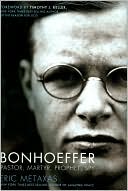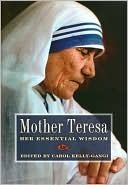Three Women in Dark Times: Edith Stein, Hannah Arendt, Simone Weil
Three women, all philosophers, all of Jewish descent, provide a human face for a decade of crisis in this powerful and moving book. The dark years when the Nazis rose to power are here seen through the lives of Edith Stein, a disciple of Husserl and author of La science et la croix, who died in Auschwitz in 1942; Hannah Arendt, pupil of Heidegger and Jaspers and author of Eichmann in Jerusalem, who unhesitatingly responded to Hitler by making a personal commitment to Zionism; and Simone Weil,...
Search in google:
Three women, all philosophers, all of Jewish descent, provide a human face for a decade of crisis in this powerful and moving book. The dark years when the Nazis rose to power are here seen through the lives of Edith Stein, a disciple of Husserl and author of La science et la croix, who died in Auschwitz in 1942; Hannah Arendt, pupil of Heidegger and Jaspers and author of Eichmann in Jerusalem, who unhesitatingly responded to Hitler by making a personal commitment to Zionism; and Simone Weil, a student of Alain and author of La pesanteur et la grâce. Following her subjects from 1933 to 1943, Sylvie Courtine-Denamy recounts how these three great philosophers of the twentieth century endeavored with profound moral commitment to address the issues confronting them. Condemned to exile, they not only sought to understand a horrible reality, but also attempted to make peace with it. To do so, Edith Stein and Simone Weil encouraged a stoic acceptance of necessity while Hannah Arendt argued for the capacity for renewal and the need to fight against the banality of evil. Courtine-Denamy also describes how as a student each woman caught the eye of her famous male teacher, yet dared to criticize and go beyond him. She explores each one's sense of her femininity, her position on the "woman question," and her relation to her Jewishness. "All three," the author writes, "are compelling figures who move us with their fierce desire to understand a world out of joint, reconcile it with itself, and, despite everything, love it."About the Author: Sylvie Courtine-Denamy is a French philosopher and author of Hannah Arendt. G. M. Goshgarian recently translated into English two books by Gérard Genette, The Aesthetic Relation and The Work of Art, both from Cornell. Publishers Weekly The darkness of the decade 1933-1943 was at least partially illumined by the energetic syntheses of thought and action that Courtine-Denamy (Hannah Arendt) skillfully examines in the three remarkable women of this book's subtitle. What animates the comparison are stark differences overlaid on basic similarities: all three were Jews and philosophers, all were imperiled by the Nazi menace. But by 1943 Stein had become a Carmelite nun and perished in Auschwitz; Weil had allied with the French Resistance and died of malnutrition in London; and Arendt had emigrated to New York, where she called for a Jewish army in Palestine. Weil, whose passions split between politics and religion, serves as linchpin for comparisons with the cloistered nun Stein and the fervently Zionist, eminently unmystical Arendt. Stein, the traditional Catholic, accepted her Jewishness; Weil, the wayward gnostic who never converted to the Christianity she loved, did not. Intersecting images from the personal lives of the three women, who never met (of the three, only Arendt knew of the other two), suggest temperamental affinities among them: Stein and Weil memorized the Lord's Prayer in premodern languages (Stein in medieval Gothic, Weil in ancient Greek); at different points of their lives, Arendt and Weil broke into absurdist laughter over the impact of Nazism (Arendt while observing the Eichmann trial, Weil while fleeing France in the company of devout Jews). A glossary of names and terms from French political life during the Nazi years would have enhanced this otherwise highly readable American edition of an originally French work. (Sept.) Copyright 2000 Cahners Business Information.\|
AcknowledgmentsxiPrologue1Part I.The Formative YearsThree Childhoods7Schooling and Teachers11"Amicus Plato, magis amica veritas" (Aristotle): Criticizing Their Teachers23Three Ways of Being a Woman35Amor Fati and the Fate of the Jews41Part II.Commitment to the Things of This World (1933-1939)1933551935631936811938911939108Part III.Exile (1940-1943)1940131194115219421651943187Epilogue202Notes223Bibliography251Index263
\ From the Publisher"In this engaging and absorbing book, Sylvie Courtine-Denamy interweaves the stories of three extraordinary women who lived through the darkest period of the Twentieth Century. Each of them was born a Jew, but reacted in radically different ways to her Jewish background. Arendt positively affirmed herself as a Jew; Weil became a Christian but never joined the Church; Stein became a nun and died in Auschwitz. Each of them was extremely precocious and studied philosophy with some of the most distinguished philosophers of the time. After exploring their childhood and youth, Courtine-Denamy follows their destinies, year by year, from 1933 through 1943. A moving, passionate, and informative account of three women intellectuals confronting the Nazi horrors." -Richard J. Bernstein, New School for Social Research\ "Sylvie Courtine-Denamy's narrative of the intellectual, cultural, and political contributions of these extraordinary women situates their work within the rise of European totalitarianism and anti-Semitism, revealing not only their personal tragedies but also their outspoken courage on behalf of others and their enduring legacies as writers, teachers, and activists. Three Women in Dark Times is a compelling study of the darkest decades of the twentieth century."-Shari Benstock, University of Miami\ "The darkness of the decade 1933-1943 was at least partially illumined by the energetic syntheses of thought and action that Courtine-Denamy skillfully examines in the three remarkable women of this book's subtitle. What animates the comparison are stark differences overlaid on basic similarities. . . . Highly readable."-Publishers Weekly. August 21, 2000.\ "Courtine-Denamy sympathizes with Arendt's stance, but she presents Weil's amor fati with exemplary clarity. Her incisive work is highly recommended for larger public and academic libraries."-Library Journal, October 1, 2000.\ "A fascinating and powerful account. . . I recommend Courtine-Denamy's book highly. It inspires one to delve more deeply into the study of these three women and their 'dark times.'"-Michael J. Kerlin,La Salle University. Theological Studies, Vol. 62, No. 2, September 2001\ "This dense and important book is an absorbing presentation of the lives and thinking of Edith Stein, Hannah Arendt, and Simone Weil, three brilliant 20th-century philosophers who remain influential today. . . Her book should be a springboard for those who wish to continue to read and carry on the work of the brave, clear-sighted women she has helped her readers understand."-Sally Cunneen. National Catholic Reporter, April 13, 2001\ "Courtine-Denamy sets them against the travail of Europe from 1933 to 1943. . . The treatment of each thinker individually, comparatively, and with respect to her understanding of this travail is striking, insightful and sophisticated but not meant to be comprehensive."-Choice, Vol. 38, No. 11, July 2001\ \ \ \ \ \ Publishers Weekly - Publisher's Weekly\ The darkness of the decade 1933-1943 was at least partially illumined by the energetic syntheses of thought and action that Courtine-Denamy (Hannah Arendt) skillfully examines in the three remarkable women of this book's subtitle. What animates the comparison are stark differences overlaid on basic similarities: all three were Jews and philosophers, all were imperiled by the Nazi menace. But by 1943 Stein had become a Carmelite nun and perished in Auschwitz; Weil had allied with the French Resistance and died of malnutrition in London; and Arendt had emigrated to New York, where she called for a Jewish army in Palestine. Weil, whose passions split between politics and religion, serves as linchpin for comparisons with the cloistered nun Stein and the fervently Zionist, eminently unmystical Arendt. Stein, the traditional Catholic, accepted her Jewishness; Weil, the wayward gnostic who never converted to the Christianity she loved, did not. Intersecting images from the personal lives of the three women, who never met (of the three, only Arendt knew of the other two), suggest temperamental affinities among them: Stein and Weil memorized the Lord's Prayer in premodern languages (Stein in medieval Gothic, Weil in ancient Greek); at different points of their lives, Arendt and Weil broke into absurdist laughter over the impact of Nazism (Arendt while observing the Eichmann trial, Weil while fleeing France in the company of devout Jews). A glossary of names and terms from French political life during the Nazi years would have enhanced this otherwise highly readable American edition of an originally French work. (Sept.) Copyright 2000 Cahners Business Information.\|\ \ \ Library JournalFrench philosopher Courtine-Denamy here compares and contrasts three Jewish women born in early 20th-century Europe: Edith Stein, Simone Weil, and Hannah Arendt. Each was a philosopher, each confronted her Jewishness differently, and the first two died tragically. Stein, a student of Husserl, embraced the philosophy of Thomas Aquinas and converted to Catholicism. While she does not neglect Stein, the author's principal interest is the contrast between Weil and Arendt. Weil displayed little concern with the fate of the Jews during the troubled 1930s and 1940s, instead maintaining that all evil must be accepted as the will of God. Arendt rejected this view, calling instead for a fight against evil. Courtine-Denamy sympathizes with Arendt's stance, but she presents Weil's amor fati with exemplary clarity. Her incisive work is highly recommended for larger public and academic libraries. David Gordon, Bowling Green St. Univ., OH Copyright 2000 Cahners Business Information.\ \ \ \ \ BooknewsCourtine-Denamy (author of ) follows her subjectsthree women who were philosophers of Jewish descentfrom 1933 to 1943, exploring how they all attempted to address the issues confronting them. Condemned to exile, they sought not only to understand the horrible reality of the Nazi era, but to make peace with it. Stein (who died in Auschwitz in 1942) and Weil encouraged a stoic acceptance of necessity, while Arendt argued for the capacity for renewal and the need to fight against the banality of evil. Originally published in French in 1997. Annotation c. Book News, Inc., Portland, OR (booknews.com)\ \








